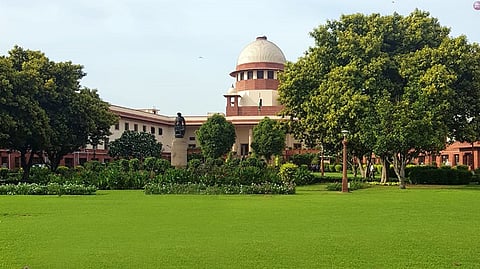
- News
- Columns
- Interviews
- Law Firms
- Apprentice Lawyer
- Legal Jobs
- हिंदी
- ಕನ್ನಡ

The Supreme Court on Tuesday deprecated the practice of courts pronouncing only the operative portion of the judgment without releasing a reasoned judgment [Indrajeet Yadav v. Santosh Singh and Another].